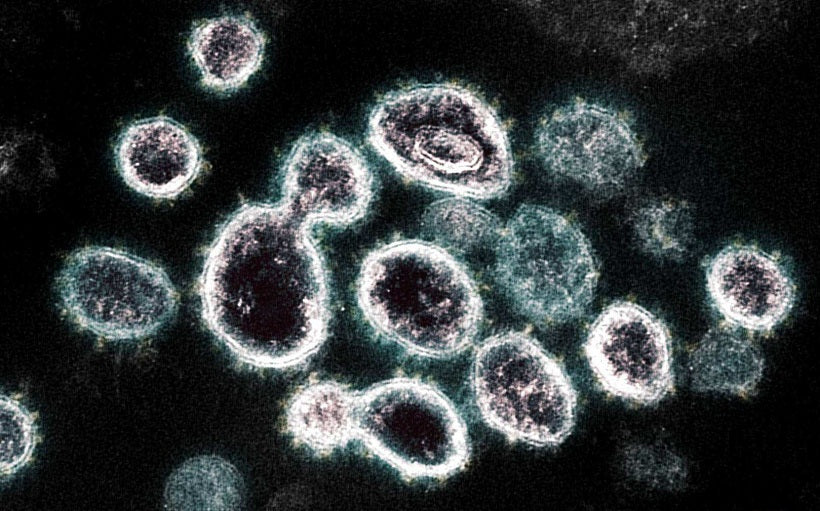In 2019, coronavirus disease outbreak, and spread around the whole world in a rapid speed. The exact source is still not known for the moment. But can cats get coronavirus? As any people have asked about this, Happy & Polly will take you to look at the latest information about COVID-19.
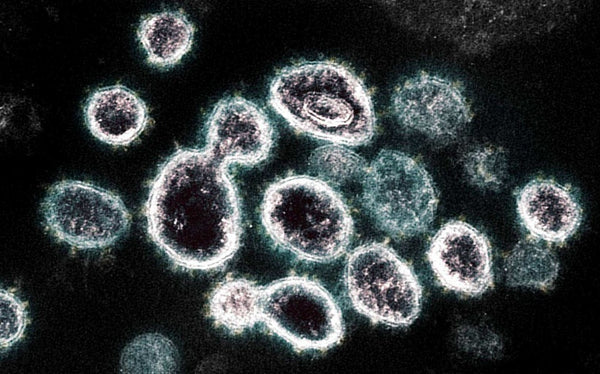
Can Pet Get Infected with COVID-19?
While the main spreader of COVID-19 is human to human transmission, there are cases of pets that got infected with this coronavirus around the world, including the US.
According to the U.S. Department of Agriculture (USDA), the first dog got tested positive for COVID-19 in New York. And its owner is also an infected human patient. There are other animals also teased positive for the disease between April 24 and July 1, including a lion, tiger, two cats, and three dogs. Most of them were in New York.
On July 8, 2020, the Centers for Disease Control and Prevention (CDC) released a tweet that confirms Pets Can Get COVID-19 In some situations.
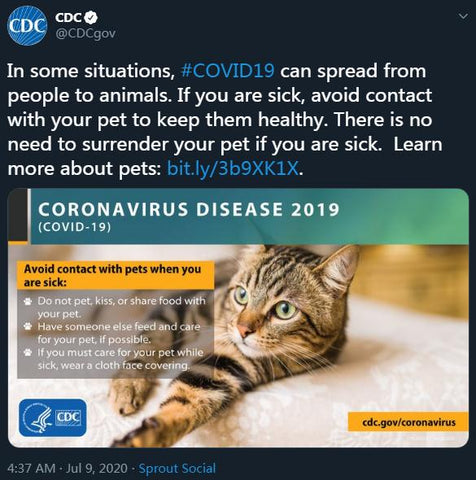
According to the CDC, the causing virus of COVID-19 is called SARS-CoV-2. Cats and dogs can be infected with this virus, as well as a few other types of animals. But not all of them have been tested. Here is the list of confirmed cases of SARS-CoV-2 in Animals in the United States if you would like to know.
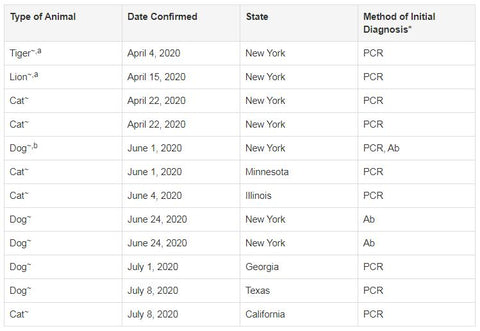
>> Full List
CDC, USDA, and other organizations are still conducting active surveillance of SARS-CoV-2 in pets. To test these pets for SARS-CoV-2 infection, and see whether they develop antibodies to this virus can help us better know the infection of pets and the role of animals in the spread of COVID-19.
But both CDC and USDA consider that the risk of pets spreading COVID-19 to people is quite low. Data show some infected pets might spread the virus to their same species more easily than other species. And these data were based on a small number of animals, and do not indicate whether animals can spread it to people.
How to Protect Your Pet During This Pandemic?
According to the CDC, there is a small chance that Pets can get affected by humans, we should take some actions to protect these family members from possible infection.

1) Limit pets’ Interaction with other animals and people
Don’t let your pets wandering outside the household alone; especially avoid public crowds where there are lots of people. Keep them indoors if possible.
If you need to walk your dog outside, make sure they are on a leash, and keep the distance for at least 2 meters away from others.
2) Keep up good hygiene
We don’t know for sure how this virus spreads; we should keep up good hygiene with our pets too. You should also wash your hands before touching their supplies, such as bowls, toys, and beds, etc.
You may also want to put on masks on pets, but officials say this is not really feasible, and it might hurt your pet. And don’t wash your pet with chemical products such as disinfectants and alcohol.
3) Protect pets if you are sick
If you are confirmed to have been affected with COVID-19, isolate yourself from other people, and pets, including your pets, and other animals.
Your pets should also be isolated and kept indoors. If possible, you can have your friend to take care of them when you are sick.
If you have to take care of them by yourself, you should not interact with them closely, such as pet, kiss or share food with them.
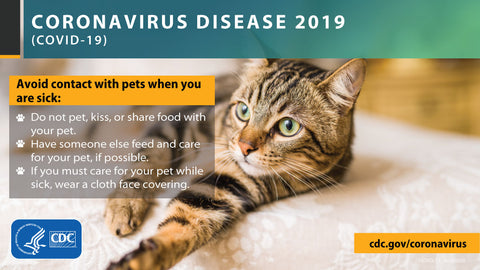
You should always wear masks when caring for them, and wash your hands before and after interacting. You can also call your vet for telemedicine consultations. They will offer your suggestion for their treatment.
What To Do If Your Pet Gets Affected?
Although some animals have been confirmed to be infected and may get sick, but none of them have died. You should not abandon them for being affected. What should you do then?
1) Consult a Vet
If your pet is confirmed infection, you should first isolate the pet, and call your vet. If you are also affected by the disease, don’t go to the clinic yourself. Call your vet first, and tell them the situation.
2) Isolate your Pet
You should provide a separate room or space for your pet. A private yard will be better for your dog to stay. Cats should be kept indoors.
You should also clean up after your pet and their supplies with gloves on. Remember to wash your hands before and after cleaning.
3) Keep up with their symptoms
If your pets are isolated at home, you should always pay attention to their symptoms. Common symptoms include fever, coughing, breathing difficulty, lethargy, sneezing, running nose, vomiting, eyes discharge, and diarrhea, etc.
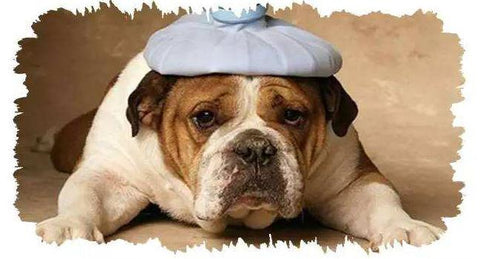
If there is any new symptom, or their symptoms get worse, such as breathing with trouble, you should call your vet immediately. Take advice from your vet over the phone, or when possible, take your pet to your vet for better treatment.
4) Protect yourself
If you have to take care of your sick pet, you should also protect yourself. You should always wear masks and gloves while interacting with them, clean your hands with soap after taking care of them and their supplies. You should also clean up the whole house and then disinfect it.
When all their signs go away, and the vet says it is ok to end home isolation, you can get your pet back to their familiar places.
Hope this can help you protect you and your pet. If you enjoyed it and would like to see more news, do not hesitate to visit Happy & Polly website on https://happyandpolly.com.
